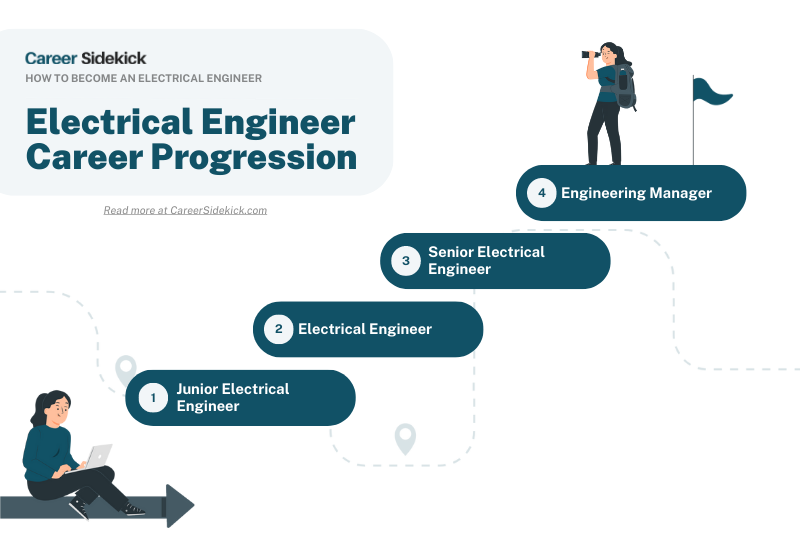Wire the Future: A Deep Dive into Electrical and Computer Engineering Courses

Blog / November 26, 2024
ece courseece engineering course detailsece course subjectswhat is ece courseElectrical and Computer Engineering (ECE) is the mainstay of contemporary technological innovation, molding the future via avant-garde advancements. This diverse field amalgamates electrical engineering with computer science, driving progress in various areas like microelectronics, telecommunications, artificial intelligence, and robotics.
Oddly enough, ECE professionals are the unsung heroes behind the systems powering everything, ranging from smartphones to smart cities. With semiconductor technology at its heart, ECE is constantly transcending the boundaries of speed, efficiency, and size. As daunting challenges to Moore’s Law brim, engineers are pioneering new materials and architectures, making sure that ECE remains at the front, revolutionizing industries, and ameliorating lives worldwide.

The Market Size
Electrical Engineering Services Market size was evaluated at USD 274.12 Billion in the year 2023 and is anticipated to reach USD 354.79 Billion by 2030, soaring at a CAGR of 3.28% during the forecasted period 2024 to 2030.
Electrical Engineering Services Market Report Coverage
|
ATTRIBUTES |
DETAILS |
|
STUDY PERIOD |
2021-2030 |
|
BASE YEAR |
2023 |
|
FORECAST PERIOD |
2024-2030 |
|
HISTORICAL PERIOD |
2021-2022 |
|
UNIT |
VALUE (USD BILLION) |
|
KEY COMPANIES PROFILED |
Schneider Electric, ABB, Legrand, GE, Emerson, Siemens, AECOM, Prysmian, Enel, Iberdrola, Eaton, DSI, Arup, ESI, Rishabh Engineering, Technosoft Engineering, Nearby Engineers, Fayda, MicroSourcing, Outsource2india, Flatworld Solutions, Vista Projects |
|
SEGMENTS COVERED |
By Type - Hardware, Software |
But the question still persists: what is an ECE course? Well, let’s dig in!
What Is Electrical and Computer Engineering Course?
An Electrical and Computer Engineering (ECE) course is an undergraduate academic program amalgamating principles of electrical engineering with computer science, preparing students for a broader spectrum of careers in technology, innovation, and engineering. ECE's emphasis on the design, development, and application of systems and devices combines circuits, software, and computing technologies.
ECE Engineering Course Details
An Electrical and Computer Engineering (ECE) course entrusts students with a powerful set of technical skills that are in high demand in a multitude of sectors. From designing avant-garde consumer electronics to creating sustainable energy systems, professionals are shaping the future of technology.
ECE Engineering Subjects
Depending upon various factors, the ECE Engineering curriculum may vary. However, below is the general outline of core courses that you will master in a four-year tenure:
- Analog Circuits
- Digital Electronics
- Semiconductor Devices
- Signals and Systems
- Control Systems
- Electric Machines & Power Systems
- Embedded Systems Hardware
- Electromagnetic Engineering
- Principles of Communication Engineering
- Digital Signal Processing
- Computer Organization and Design
- Artificial Intelligence and Machine Learning, and
- Power Electronics and Machine Drives
Believe it or not, the impact of ECE can be easily felt in almost every aspect of contemporary life. For instance, telecommunication allows rapid, reliable networks to connect billions of individuals worldwide. In the healthcare sector, it powers medical tools to diagnose diseases, help in surgeries, and monitor patient health. In energy, ECE enables the development of smart grids and renewable energy systems, powering the sustainable future we all hope for.
Master the Future of Tech with B. Tech. in Electrical and Computer Engineering course @ Shiv Nadar University (Institution of Eminence)
Shiv Nadar University is a private university founded and coined by Shiv Nadar - an Indian Philanthropist and a co-founder of HCL Technologies. The university has been recognized for its commitment and dedication to quality education in all fields of study.
The B.Tech. in Electrical and Computer Engineering at the School of Engineering is specifically designed to provide students with detailed knowledge of electronic systems, communication technologies, and signal processing at the average level. The program has been a blend of theoretical academic knowledge and practical skills, designed to provide students with the general knowledge necessary for the dynamics of the industry.
Altogether, Shiv Nadar University is excessively gaining recognition for its high academic standards, research output, and industry linkages. It has established strong international partnerships with universities and institutions globally; allowing student exchange programs, joint research initiatives, and global exposure, helping students gain a global perspective and boost the university’s academic credibility.
To Put It All Together
Apart from the Internet of Things, Artificial Intelligence, and Cybersecurity, ECE innovation confronts the challenges of tomorrow. Clearly, as a field, electrical and computer engineering is supposed to transcend all appropriate boundaries by which it shapes innovations in technology. So, what has been on your mind? Come and join B. Tech. at Shiv Nadar University today!